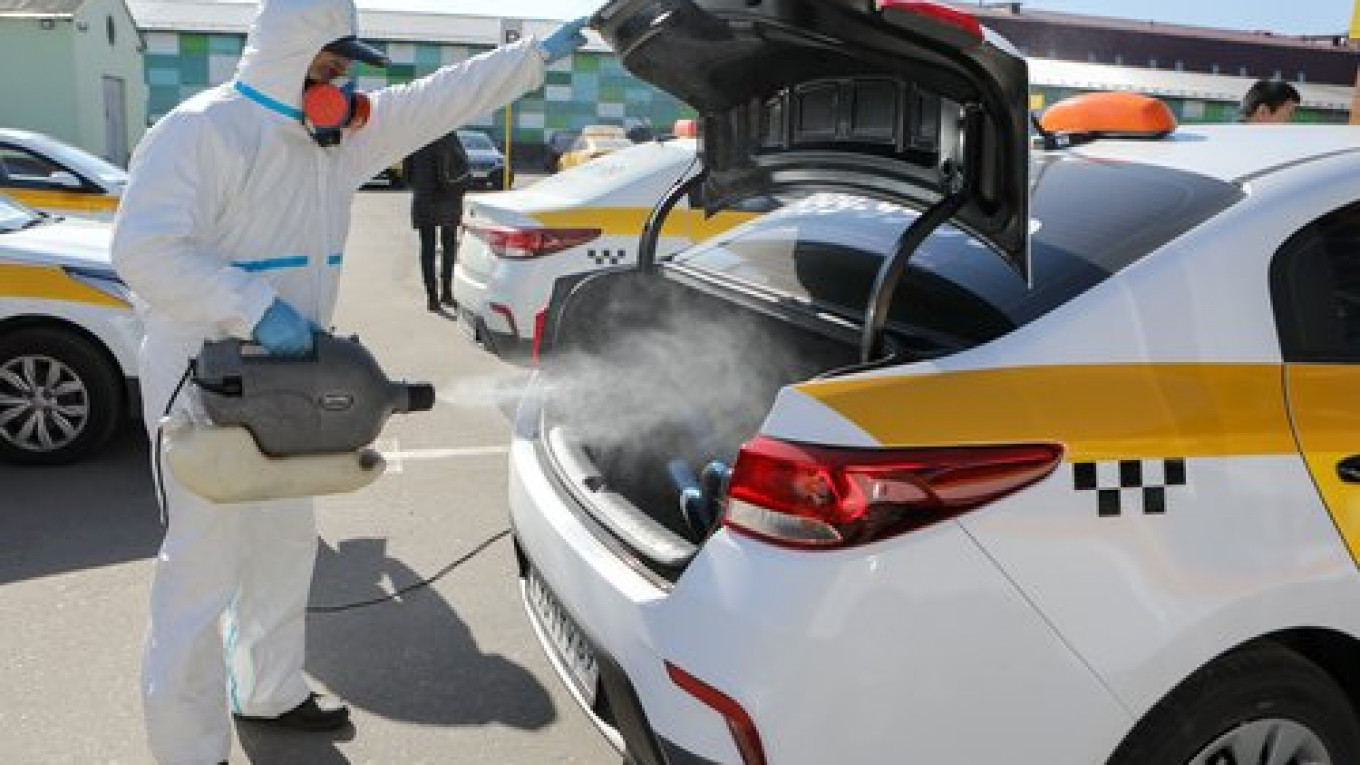Russia will close all border crossings on March 30, the government said on Saturday, tightening restrictions after the country reported its biggest one-day rise in new coronavirus cases.
The authorities said they so far had recorded 1,264 confirmed cases, an increase of 228 in 24 hours, and ordered that all vehicle, rail and pedestrian checkpoints, as well as the country's maritime borders, be closed from Monday.
Russia has already grounded all international flights and declared next week a non-working week — which does not apply to workers from key businesses like pharmacies and supermarkets — in a bid to curb the spread of the virus.
Moscow, Russia's worst-affected area, has shut all cafes, restaurants and shops, apart from those selling food and medicine, until April 5.
Sergei Sobyanin, the capital's mayor, on Saturday urged residents to stay at home during the extended holiday that was announced by President Vladimir Putin last week.
In a letter to users of Moscow's online portals, Sobyanin said the week-long holiday should not be treated lightly.
"This is not an extra holiday, but a key measure in fighting the spread of the coronavirus," he wrote.
Sobyanin warned that the week off could only help contain the outbreak if Muscovites remained home, at their apartments or dachas, their out-of-town cottages, for the next nine days.
"Do not invite guests and don't be a guest yourself," he wrote. "Do not go to shops without the extreme need to do so."
He also called on Muscovites to refrain from taking walks or to make only short ones, and exclusively with family members.
"The lives of many people depend on each of us, literally," Sobyanin said. "Please stay home."
Pictures circulating on social media on Saturday showed Russians stocking up on construction and gardening materials at hardware stores ahead of the week-long holiday as they prepared to retreat to their dachas.
Other countries have preferred locking down cities, with people only allowed out for food and medicine.
A Message from The Moscow Times:
Dear readers,
We are facing unprecedented challenges. Russia's Prosecutor General's Office has designated The Moscow Times as an "undesirable" organization, criminalizing our work and putting our staff at risk of prosecution. This follows our earlier unjust labeling as a "foreign agent."
These actions are direct attempts to silence independent journalism in Russia. The authorities claim our work "discredits the decisions of the Russian leadership." We see things differently: we strive to provide accurate, unbiased reporting on Russia.
We, the journalists of The Moscow Times, refuse to be silenced. But to continue our work, we need your help.
Your support, no matter how small, makes a world of difference. If you can, please support us monthly starting from just $2. It's quick to set up, and every contribution makes a significant impact.
By supporting The Moscow Times, you're defending open, independent journalism in the face of repression. Thank you for standing with us.
Remind me later.






